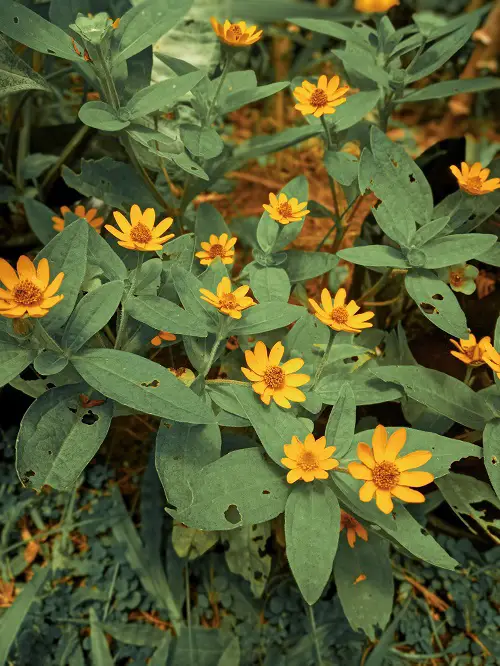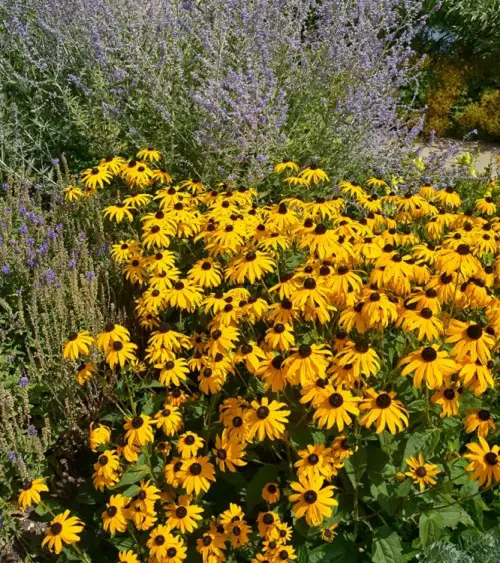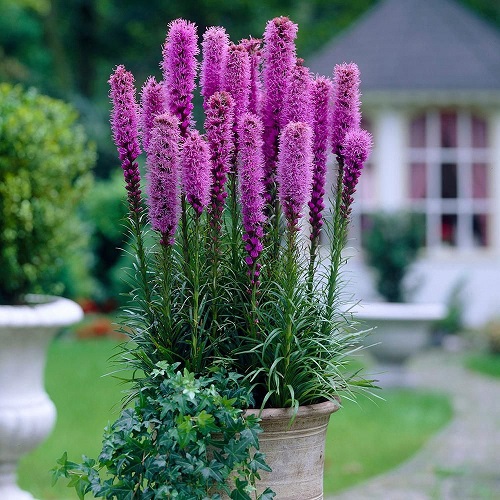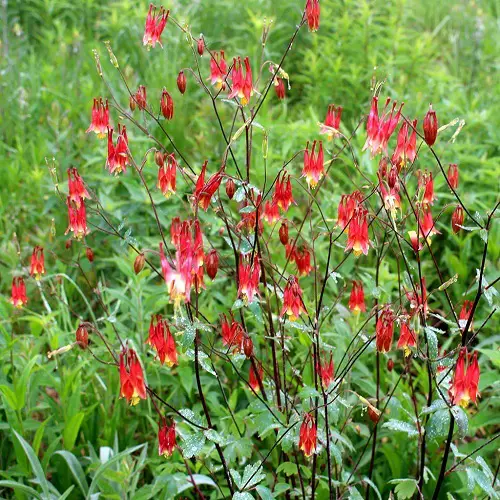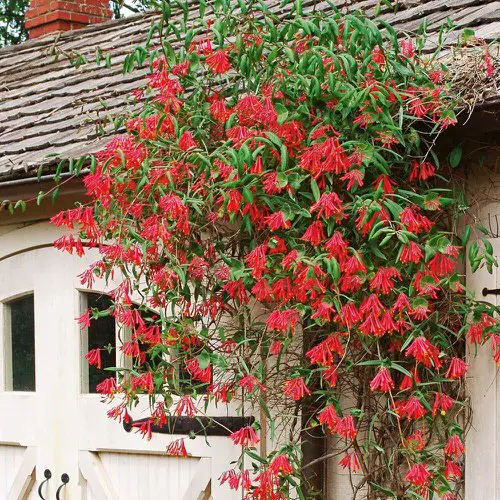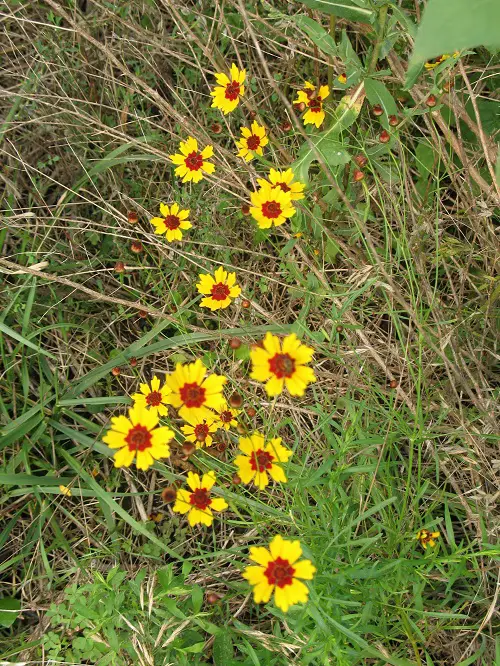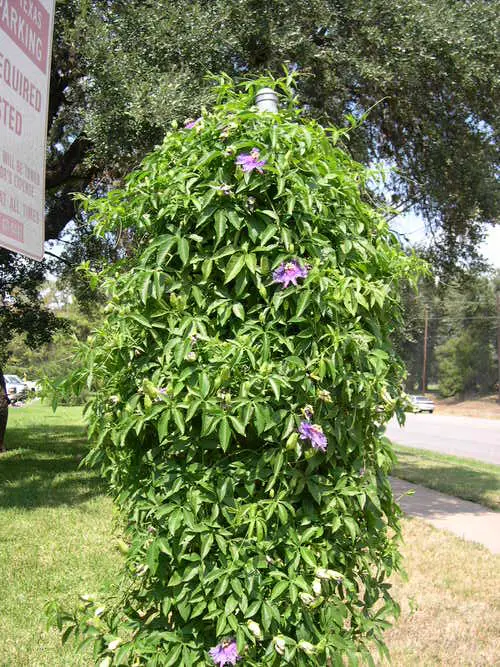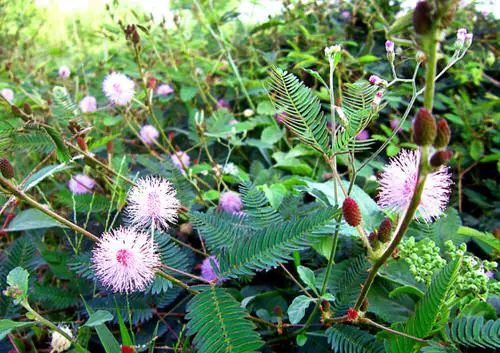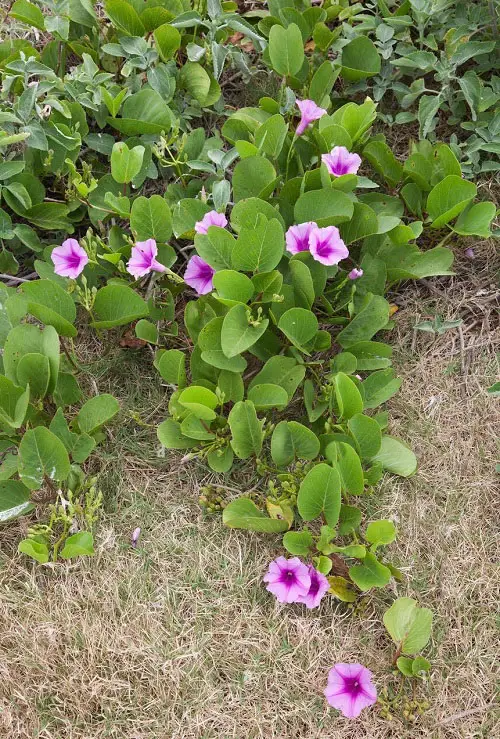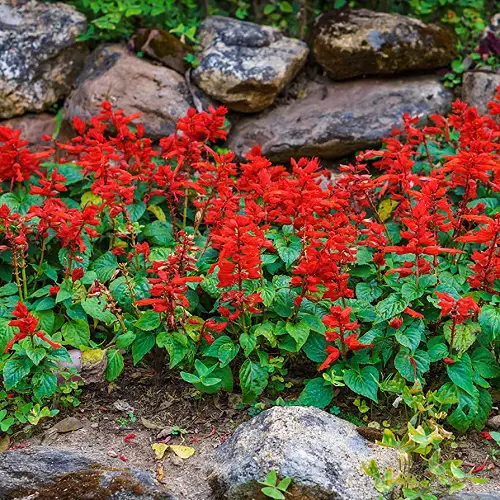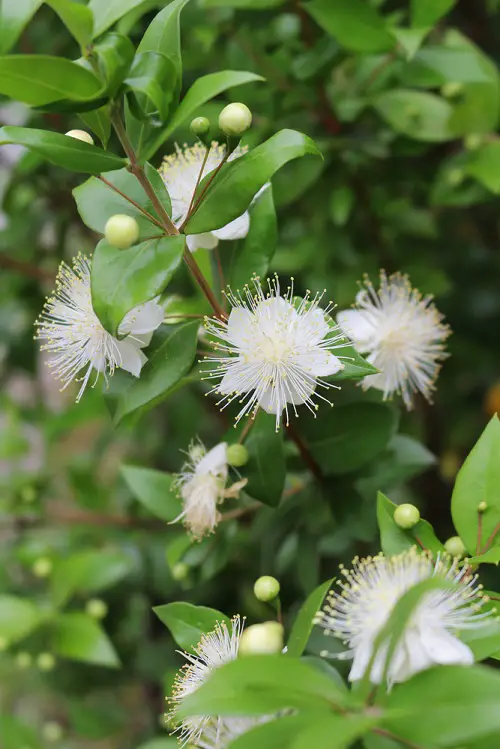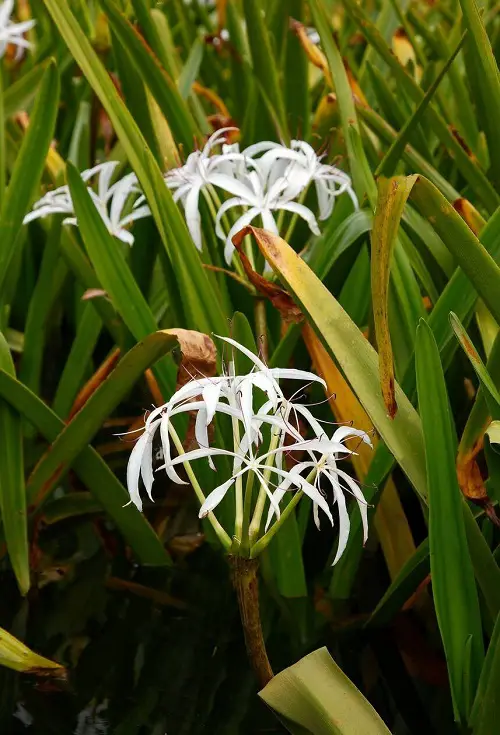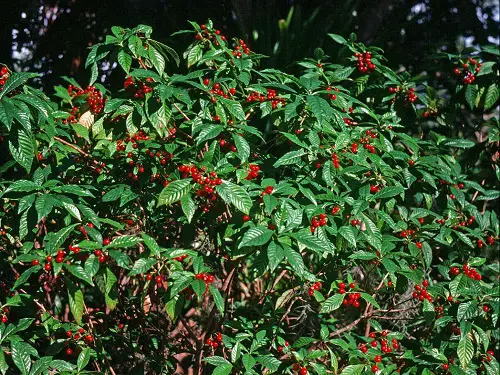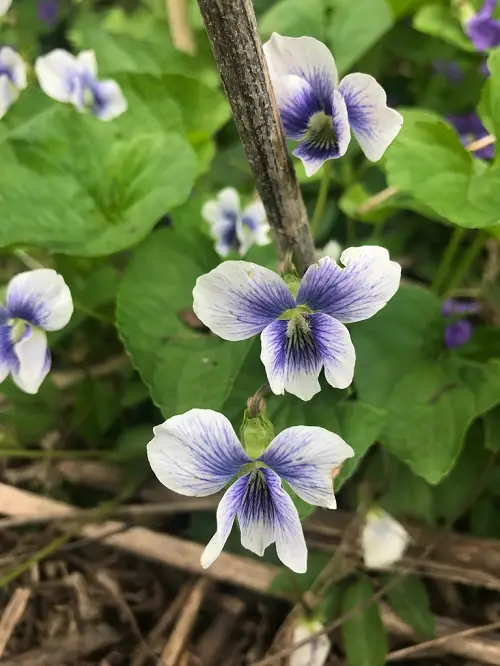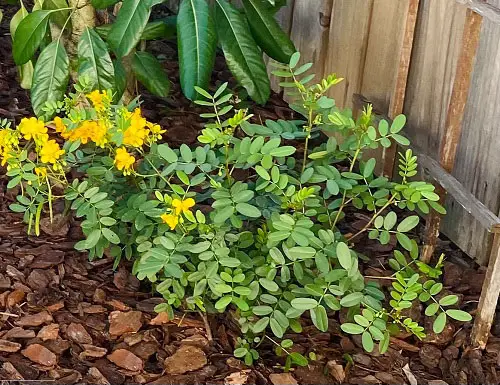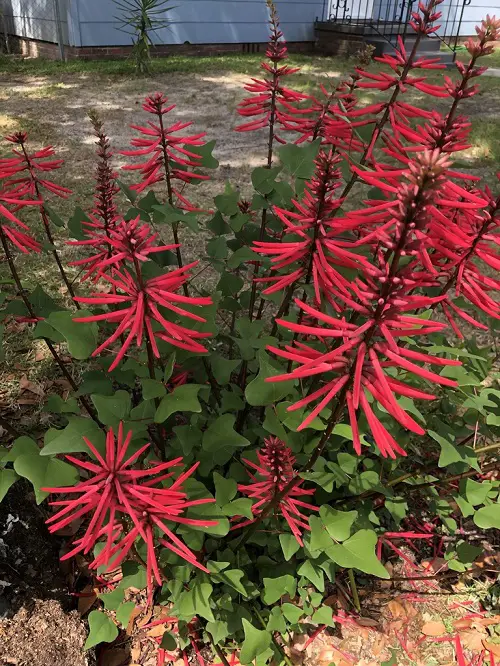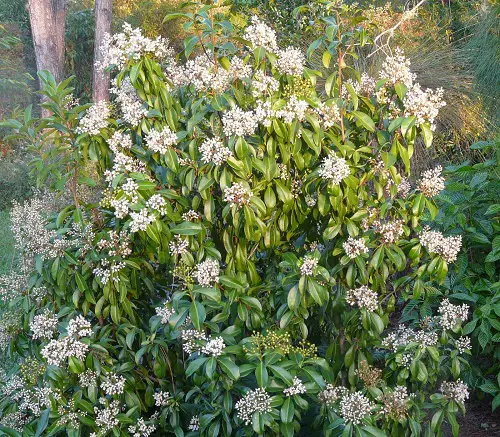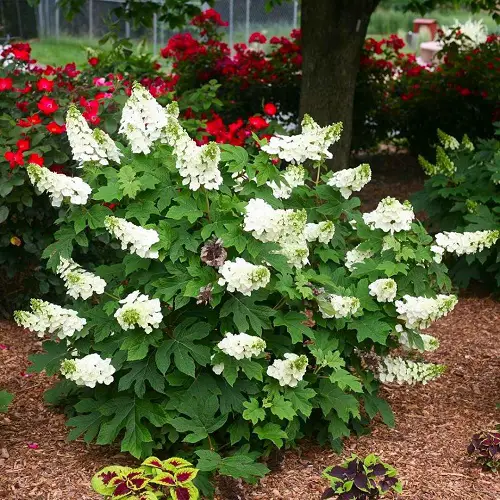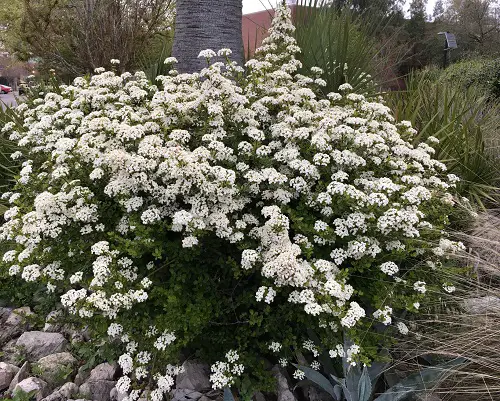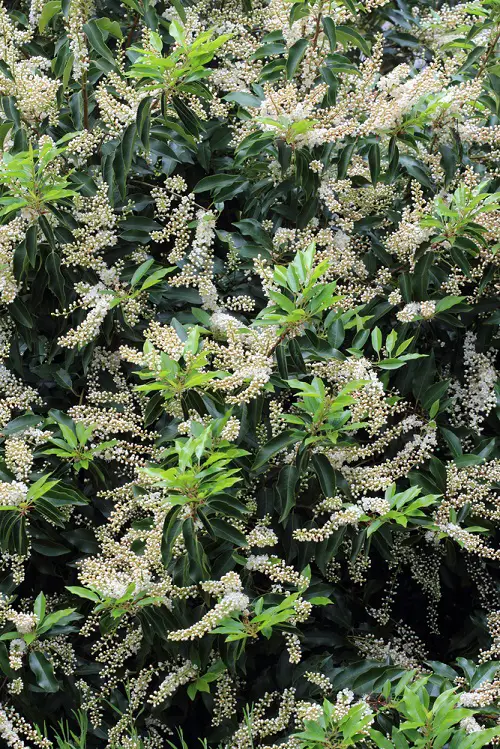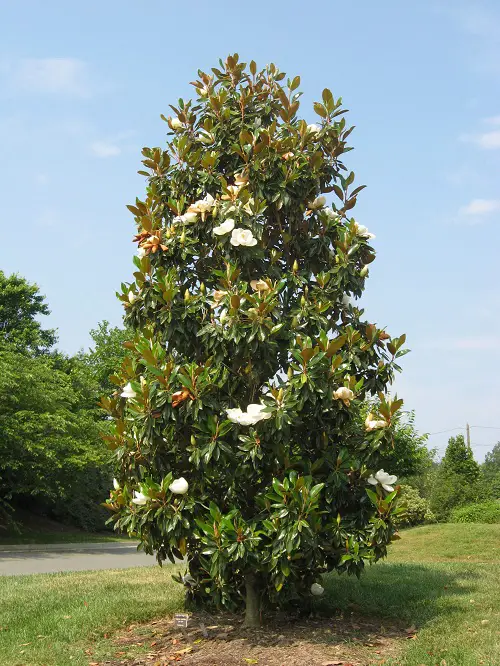Want to know about Native Florida Flowers? Keep on reading to find out the perfect blooms for the sunshine state!
Do you live in Florida and looking for blooms that can grow really well all year round in its tropical climate? These native options are your best bet!
Native Florida Flowers
1. Beach Sunflower
Botanical Name: Helianthus debilis
USDA Zones: 8-10
As the name suggests, the ‘beach’ suffix on the plant’s name indicates where it is commonly spotted, and grows well. The yellow blooms are its highlight!
2. Black-Eyed Susan
Botanical Name: Rudbeckia hirta
USDA Zones: 3-9
Another popular plant with canary flowers, this one stands out with its contrasting combination and blooms from midsummer to fall.
3. Blazing Star
Botanical Name: Liatris spicata
USDA Zones: 8-10
With flowers growing on tall spikes, this Florida native does really well in its climate and blossoms in pink and purple colors. It is also a pollinator magnet.
4. Blue Flag Iris
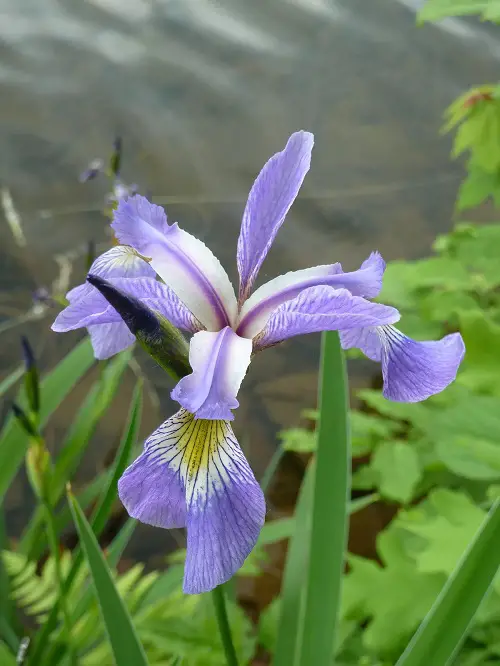
Botanical Name: Iris virginica
USDA Zones: 3-9
A standout plant with blue-purple flowers, this one grows really well in the typical tropical climate of the state and blossoms well in plenty of sunlight.
5. Carolina Jessamine
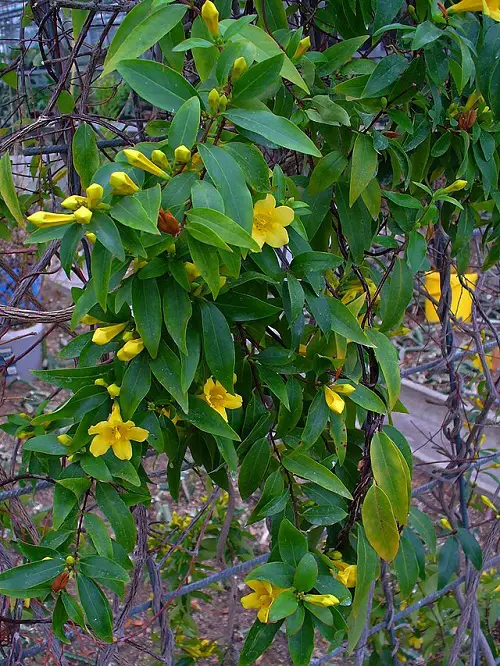
Botanical Name: Gelsemium sempervirens
USDA Zones: 7-9
Looks like Florida is home to many yellow flowers as this one is a now fifth on the list! Its trumpet like blooms blossom in late winter and early spring.
6. Red Columbine
Botanical Name: Aquilegia canadensis
USDA Zones: 3-8
It produces clusters of red flowers that grow the best in warm weather and bright, indirect sunlight. Do make sure to use a well-draining growing medium for this one.
7. Coral Honeysuckle
Botanical Name: Lonicera sempervirens
USDA Zones: 4-9
If you want a climbing specimen for your garden, this will not disappoint. It grows clusters of red-orange flowers that blossom in late spring and summer.
8. Coreopsis
Botanical Name: Coreopsis florida
USDA Zones: 4-9
Yet another canary plant on this list, it stays low on the ground, which makes it a perfect pick for the borders in the garden. It flowers from spring to fall.
9. Elliott’s Aster
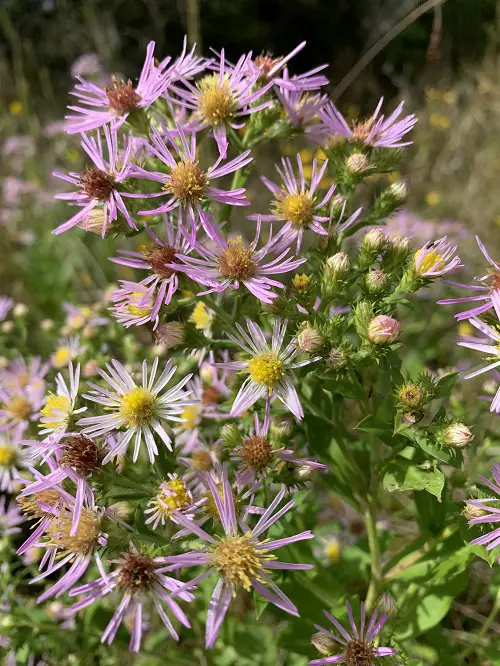
Botanical Name: Symphyotrichum elliottii
USDA Zones: 8-11
If you want flowers that look different from the rest, this is the one to pick! Its daisy-like blossoms bloom in late summer and early fall.
10. Gaillardia
Botanical Name: Gaillardia pulchella
USDA Zones: 5-9
Colorful and bright, gaillardia does well in the warm climate and grows well in the mix of shade and sun. Use a well draining soil for best growth.
11. Giant Ironweed
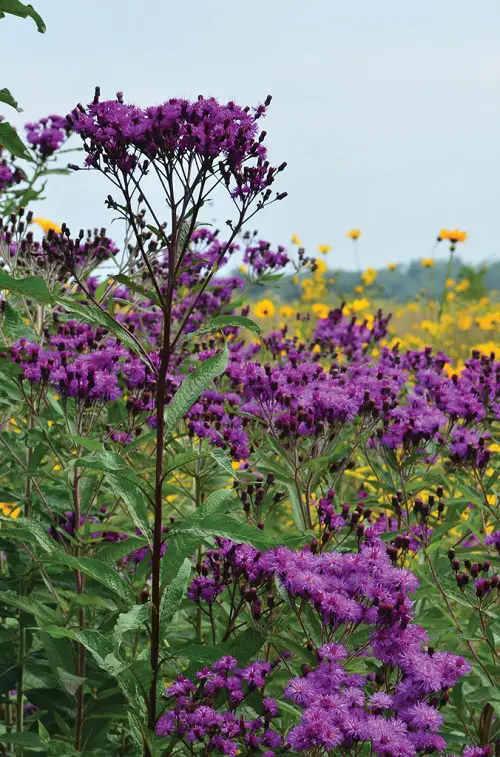
Botanical Name: Vernonia gigantea
USDA Zones: 5-9
This towering plant is great to add some visual drama to the garden, which it does quite well, thanks to its deep purple flowers that bloom best in full sun.
12. Passion Flower
Botanical Name: Passiflora incarnata
USDA Zones: 6-10
We all know this on and probably have on in our garden, too. It grows clusters of flowers that bloom in summer and fall.
13. Pink Sundew
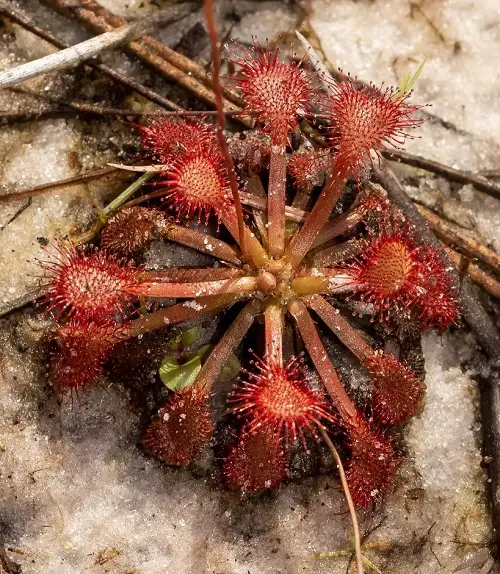
Botanical Name: Drosera capillaris
USDA Zones: 8-10
This is the most quirky one you can spot in Florida and that’s because it is a carnivorous plant. It grows pink flowers in spring and summer.
14. Powderpuff Mimosa
Botanical Name: Mimosa strigillosa
USDA Zones: 8-10
This ground-covering specimen produces clusters of flowers that look like collection of small cotton balls from a distance. It blossoms in summer and fall.
15. Prickly Pear
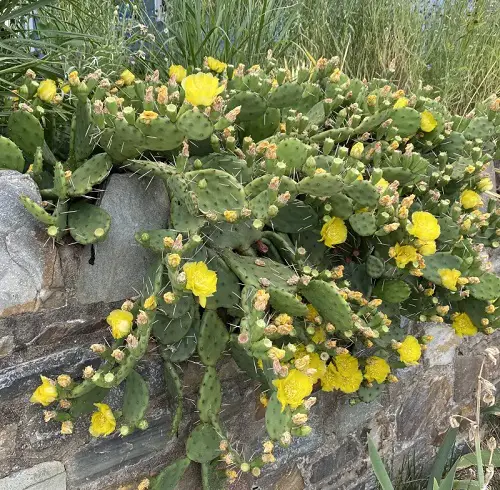
Botanical Name: Opuntia humifusa
USDA Zones: 4-10
A cacti that we all love for its beautiful yellow flowers! This Florida native grows best in the state’s environment and you must not miss this!
16. Purple Coneflower
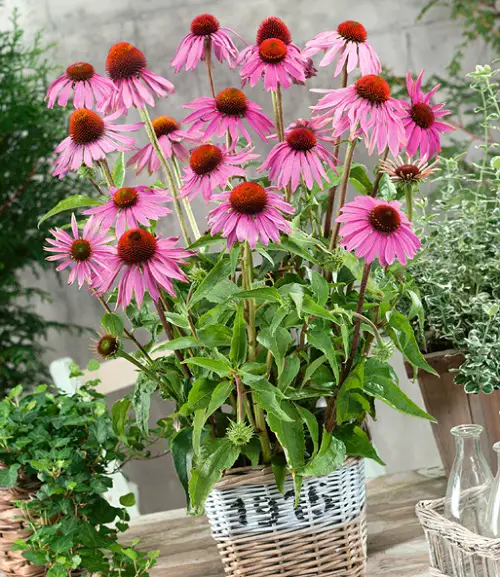
Botanical Name: Echinacea purpurea
USDA Zones: 3-8
If you like the combination of pink and purple, this one wouldn’t disappoint with its clusters of towering blooms. It grows well in containers, too.
17. Railroad Vine
Botanical Name: Ipomoea pes-caprae
USDA Zones: 9-11
A wild one on the list that you can spot along the roadsides. It is really easy to look after and blooms pink flowers in spring and summer.
18. Scarlet Milkweed
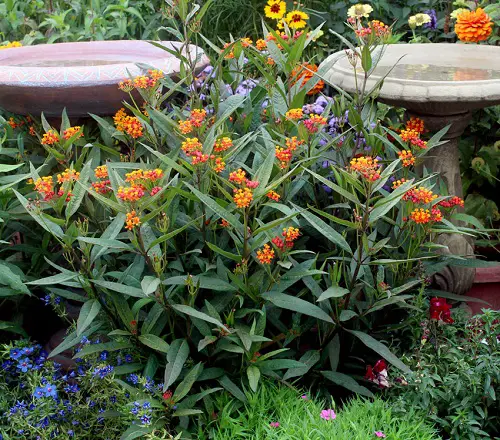
Botanical Name: Asclepias curassavica
USDA Zones: 4-10
With the right combination of green foliage and bright orange flowers, this is the summer champion that grows really well in warm and sunny climates.
19. Scarlet Sage
Botanical Name: Salvia coccinea
USDA Zones: 7-11
If red is your color, you need to have this plant in your collection, which also happens to be the pollinator’s favorite! It blooms from spring to fall.
20. Simpson’s Stopper
Botanical name: Myrcianthes fragrans
USDA Zones: 8-11
The white flowers of this plant appear so good, you might mistake it for a fake one! A must-have for patios or near the entrance of the home.
21. Spiderwort
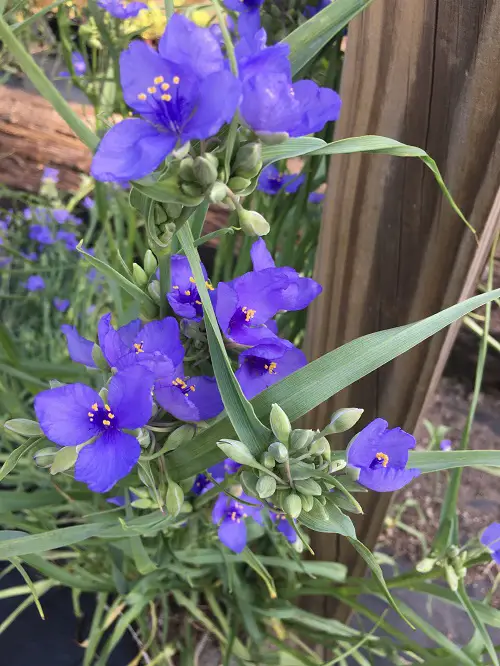
Botanical Name: Tradescantia ohiensis
USDA Zones: 4-12
Purple and beautiful, this plant blooms flowers in clusters and does well in full sun. It is also easy to look after as long as you water it regularly.
22. Swamp Lily
Botanical Name: Crinum Americanum
USDA Zones: 7-11
These are quite a common spotting along the marshy areas of the state. The plant grows slender white flowers that are also fragrant.
23. Swamp Mallow

Botanical Name: Hibiscus coccineus
USDA Zones: 8-10
Another plant that loves to grow in the wet regions, this Florida native blooms from summer to fall, producing pink or white flowers.
24. Swamp Sunflower
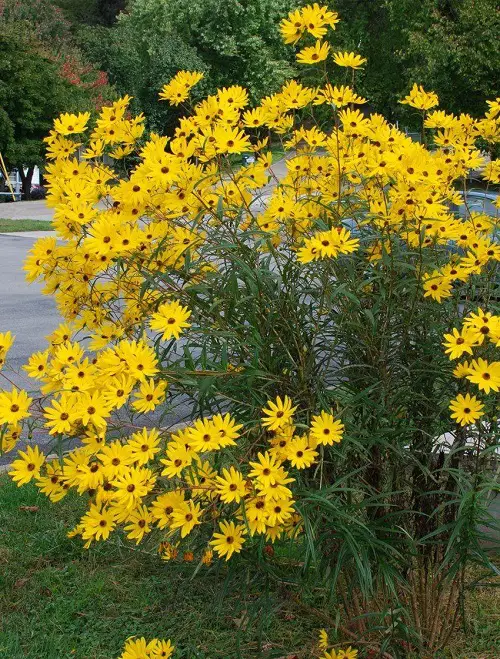
Botanical Name: Helianthus angustifolius
USDA Zones: 5-9
You can call these miniature sunflowers as they look as beautiful, just they come in small size! This is one of the best plants to attract butterflies.
25. Tickseed

Botanical Name: Coreopsis
USDA Zones: 4-10
If you want to cover the bottom side of your fence with blooms, this one will do the job in a low-maintenance way! It blooms throughout the year.
26. Wax Myrtle

Botanical Name: Myrica cerifera
USDA Zones: 7-10
The flowers of this plant are not only bright, they are also fragrant, which makes it one of the must-haves on this list of Florida native flowers!
27. Wild Coffee
Botanical Name: Psychotria nervosa
USDA Zones: 9-11
This is a low growing shrub that can also make for a good border plant, thanks to its dense growth habit. It produces white flowers that turn into red berries.
28. Bog White Violet
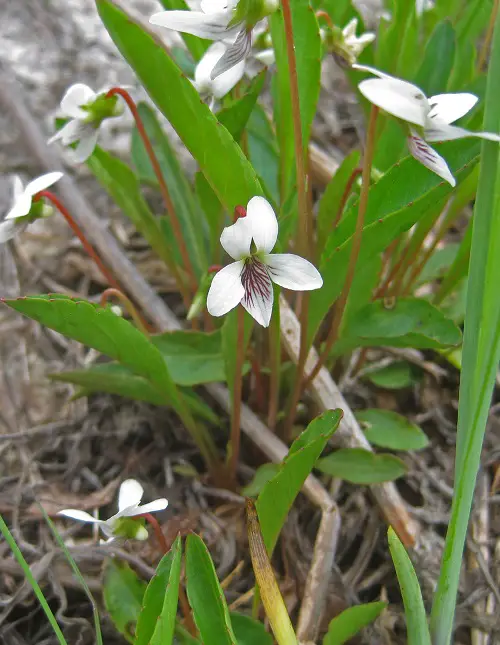
Botanical Name: Viola lanceolata
USDA Zones: 2-8
The white flowers of this plant are not significantly large and stay small. You can easily spot it in the wetland areas throughout Florida.
29. Blue Violet
Botanical Name: Viola sororia
USDA Zones: 3-9
This one has the subtle combination of white and blue on the petals, that matches with its bright green foliage. It blooms in the spring and summer.
30. Walter’s Violet

Botanical Name: Viola Walteri
USDA Zones: 5-8
Perfectly purple and beautiful, this low-growing plant will look great if grown in clusters on the borders. It blooms abundantly in spring.
31. Butterfly Orchid
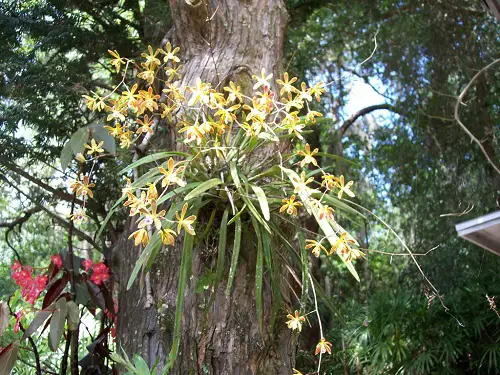
Botanical Name: Encyclia tampensis
USDA Zones: 8-11
Yes! They do have their own native orchid in Florida! It grows delicate white-yellow flowers that may also come in hues of purple or pink.
32. Ghost Orchid
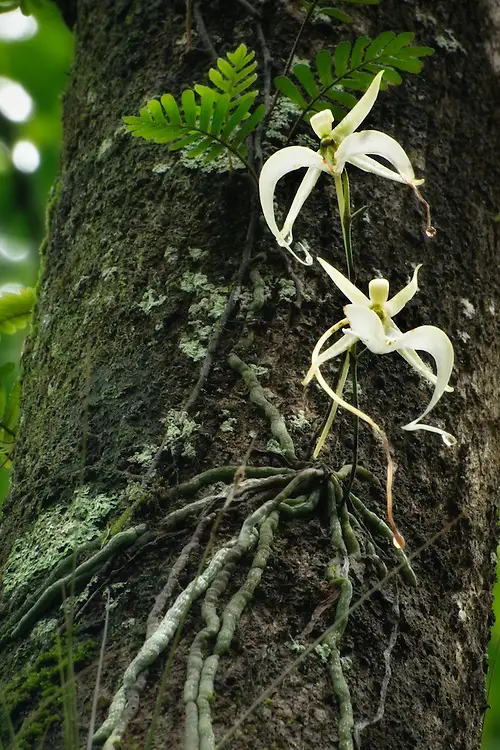
Botanical Name: Dendrophylax lindenii
USDA Zones: 10-11
Another orchid from Florida, this one grows selective flowers in white that have a very delicate appearance. You can spot these on the bark of trees in the wild.
33. Spider Orchid
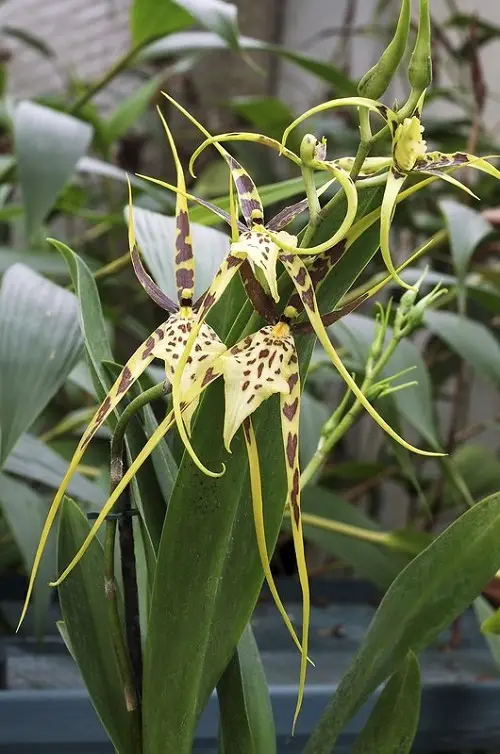
Botanical Name: O. fuciflora
USDA Zones: 8-10
Has to be one of the most beautiful orchids from Florida, it has unique brown spots and markings on its yellow petals. It blooms in summer.
34. Azaleas
Botanical Name: Rhododendron
USDA Zones: 5-9
If you didn’t know, azaleas are from Florida! These striking plants get covered with flowers from spring to summer and come in the hues of pink, red, and white.
35. Bahama Cassia
Botanical Name: Cassia bahamensis
USDA Zones: 10-11
Yes, another yellow flower that you can’t miss! This one grows them in clusters and does well in bright light. It is also a good plant to attract pollinators.
36. Beautyberry
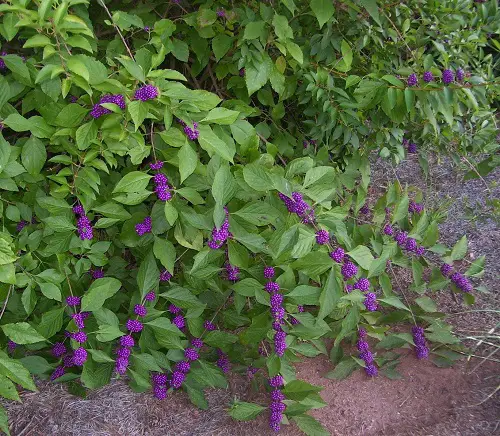
Botanical Name: Callicarpa americana
USDA Zones: 6-10
This native Florida flower grows cylindrical flowers that have a deep purple hue. These match really well with its light green to deep foliage.
37. Coral Bean
Botanical Name: Erythrina herbacea
USDA Zones: 8-11
These red flowers are a sight to behold when the plant is in full glory of them in spring and summer. It grows best in full sun.
38. Firebush
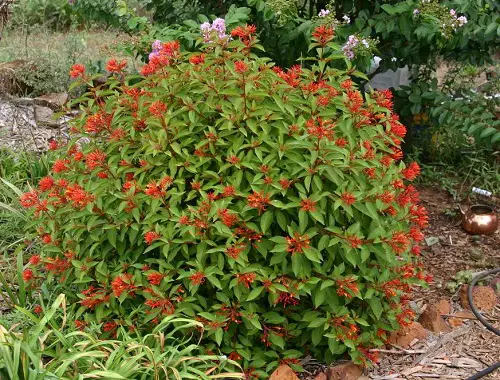
Botanical Name: Hamelia patens
USDA Zones: 9-10
Fiery and striking are the words that define this Florida beauty! Its red and orange flowers are a magnet for hummingbirds and butterflies.
39. Jamaica Caper
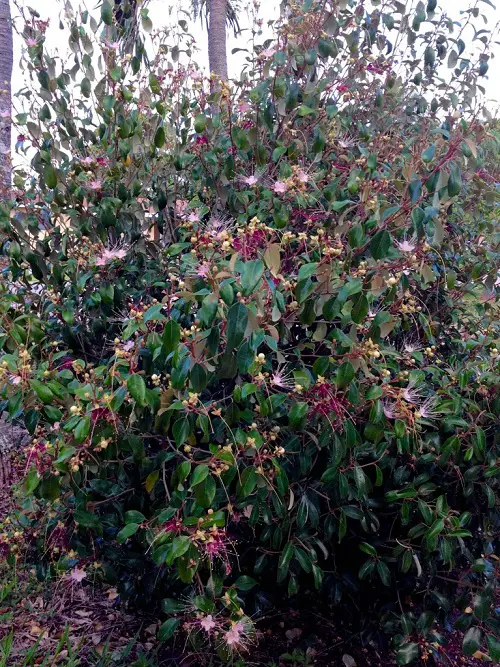
Botanical Name: Capparis cynophallophora
USDA Zones: 10-11
A tall bush that will also act as a great privacy screen, it produces clusters of pink and white flowers that also carry a sweet fragrance.
40. Marlberry
Botanical Name: Ardisia escallonioides
USDA Zones: 9-11
Don’t confuse it with mulberry; this is a small sized shrub that grows small, white, or pink flowers in late fall and winter.
41. Oakleaf Hydrangea
Botanical Name: Hydrangea quercifolia
USDA Zones: 5-9
We all love different types of hydrangeas and this one stands out with its white, cone like flowers that the plant gets full with in summer and fall.
42. Star Anise
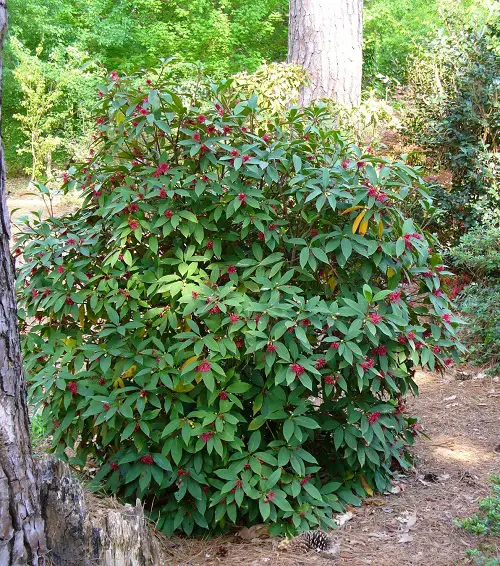
Botanical Names: Illicium Floridanum
USDA Zones: 7-10
Another stubby plant that showcases clusters of white flowers in spring and summer, this also produces aromatic seeds that taste amazing in Asian cuisines.
43. Walter’s Viburnum
Botanical Name: Viburnum obovatum
USDA Zones: 7a-10b
If you want a living bouquet to grace your garden, this Florida native would not disappoint. It produces fragrant white flowers.
44. Chickasaw Plum
Botanical Name: Prunus angustifolia
USDA Zones: 5-9
A small tree, it gets covered with elongated white flowers in the spring, followed by red plums in the summer.
45. Eastern Redbud
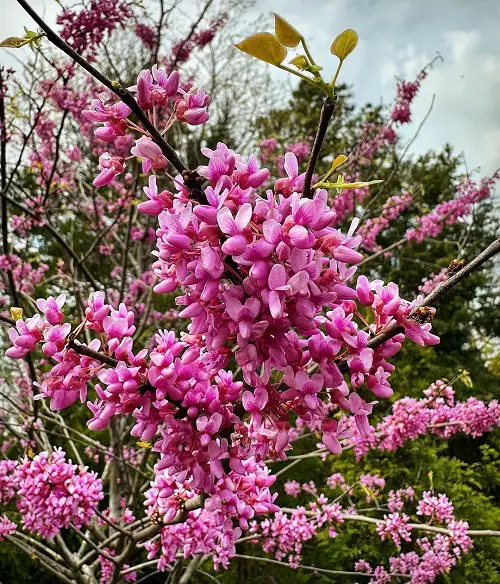
Botanical Name: Cercis canadensis
USDA Zones: 4-9
This one is the most striking one on this list, and that’s due to the bright pink flowers it gets covered with in early spring.
46. Red Buckeye
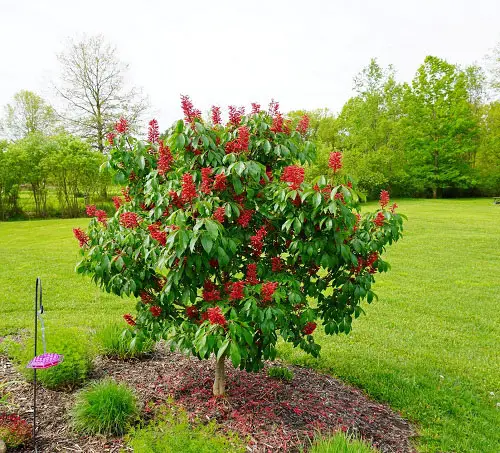
Botanical Name: Aesculus pavia
USDA Zones: 4-8
Short and sweet, you can keep it pruned to suit your height choice and it will keep on blooming red flowers throughout spring.
47. Southern Magnolia
Botanical Name: Magnolia grandiflora
USDA Zones: 6-10
If you want a teller specimen that stands out with deep green foliage and contrasting white flowers, this is it! It will be in bloom throughout summer.


